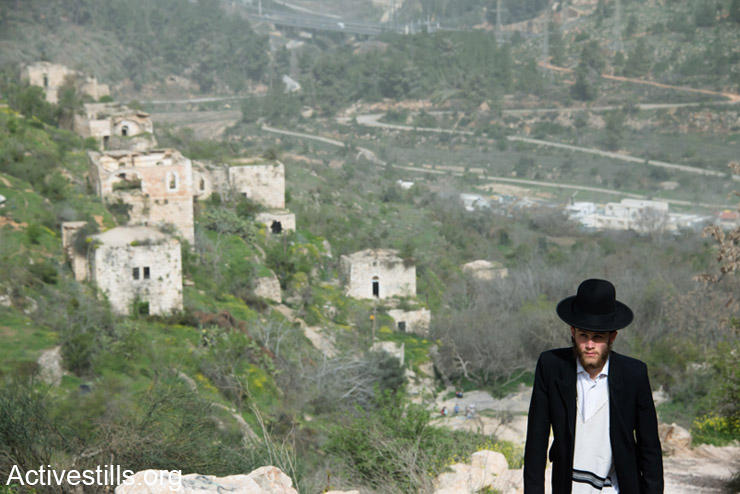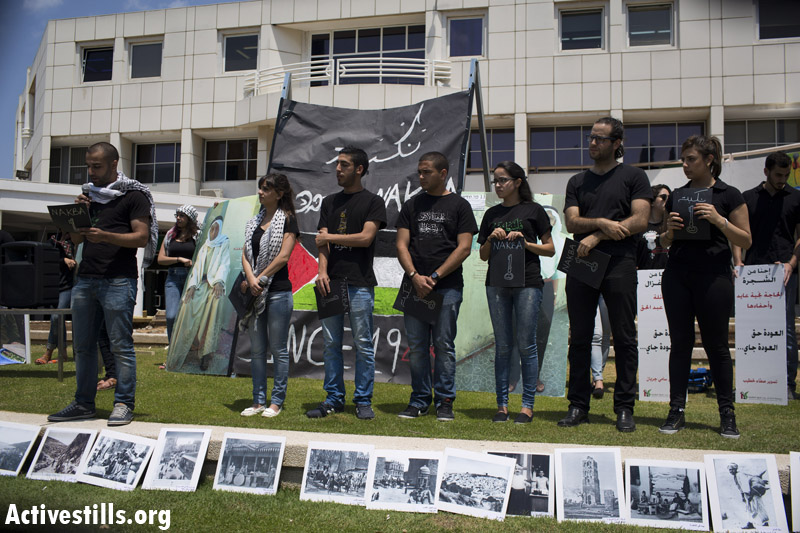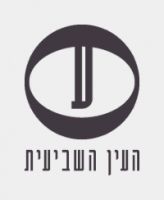A new study reveals that although Israeli newspapers present an array of views on the Nakba, the most common one sees it as nothing less than a threat that seeks to delegitimize Israel.
By Oren Persico / ‘The 7th Eye‘

A new study reveals that Israel’s mainstream media maintains the state’s official stance toward the Nakba, and “puts full responsibility on the tragedy that occurred in 1948 on the Palestinian leadership, thus purifying Israel from any responsibility for the outcome of the war on the Palestinian people.”
The study, conducted by Amal Jamal and Samah Basool and published earlier this year by the I’lam Media Center for Arab Palestinians in Israel, is based on the way Israel’s five main newspapers – Yedioth Ahronot, Ma’ariv, Israel Hayom, Haaretz and Hamodia – describe the Nakba (the Arabic word for “catastrophe,” which Palestinians use to describe the expulsion of over 750,000 Palestinians from their homes during the 1948 War). The researchers looked at how the newspaper articles refer to the Nakba during the period in which the term comes up most naturally – two weeks before Israel’s Independence Day, and two weeks after May 15, Nakba Day. The study took place between 2008-2012 in an attempt to understand the “patterns of perceptions of the Palestinian Nakba in the Israeli collective consciousness, as they are reflected in Israel’s media discourse.”
In their study, Jamal and Basool stress that the goal is not “to argue over the stances in the articles sampled, but rather to classify their contents according to parameters of attitudes.”
As one could probably guess, the newspaper that publishes the highest number of articles relating to the subject is Haaretz. Surprisingly, Israel Hayom published a relatively high number of articles on the Nakba, as opposed to Yedioth Ahronoth and Ma’ariv.
“The data is surprising, on the one hand, since Yedioth Ahronoth is seen as a centrist newspaper that deals with the major issues of the day,” write the researchers. “[…] on the other hand, the large number of articles published in Israel Hayom does not ostensibly align with the nationalistic, hawkish worldview of the newspaper.
Jamal and Basool explain the findings:
Yedioth Ahronoth tries not to upset its readers, and thus refrains from dealing with controversial issues. On the other hand, Israel Hayom serves as a comfortable platform for expressing hawkish opinions toward Arabs and Palestinians. While this fact raises the amount of attention paid to the Nakba, it does so by framing it in a very negative light, which invites a contemptuous attitude toward it.
Jamal and Basool divide the media’s views of the Nakba into five categories, with the first two categories subdivided into two categories each.

The first view is one of denial, which views the Nakba as an invention based on propaganda and historical distortions. This view is subdivided into two subcategories: (1a) Denying that that the events of 1948 amount to a Nakba; (1b) The Nakba is an invention based on propaganda and historical revisionism.
The second view is one of denying responsibility for the Nakba, while not denying the it took place. This view is also subdivided into two categories: (2a) The Palestinians are to blame for their situation; (2b) The Nakba is the result of a war that Israel was forced into.
WATCH: Palestinian students commemorate Nakba at Tel Aviv University
According to the third view the Nakba was a tragic occurrence that continues until today. According to the fourth view the Nakba is a continuing threat whose goal is to delegitimize Israel. According to the fifth view, the Nakba is a part of the collective memory that needs to be respected.
The study shows that the most common view in the newspapers (that are not published in Haaretz) is the fourth one, according to which the Nakba is nothing less than a threat that seeks to delegitimize Israel.
“The prominence of the view that sees the Nakba as a continuous threat whose goal is the delegitimization of Israel is connected to the growing emphasis on Israel’s public, diplomatic struggle against the boycott, which has grown in the last years,” say the researchers. According to them “the view that the Nakba is a threat and delegitimizes Israel is intended to mobilize Israeli public opinion – to mold the public’s consciousness against the most central expression of Palestinian identity: the memory of the Nakba.

The prominence of this view along with the relative prominence of other views, creates what the researchers describe as an “array of public stances, which deny the truth behind the catastrophe that the Palestinians underwent in 1948, and Israeli responsibility for this catastrophe.”
On the other hand, one also encounters views that place the blame on Palestinians for what took place in the 1948 War. “In other words,” write Jamal and Basool, “there are two basic stances that are not necessarily coherent. The first stance denies the existence of the Nakba, while the second one denies Israel’s responsibility for what happened to the Palestinians.”
After analyzing the headlines of the articles included in the study sample, the researchers created a world cloud that presents the most popular terms in different sizes, according to the number of times they appeared. The most common terms that appeared (aside from “Nakba” itself) are: “Israel,” “IDF,” “in the territories,” “were wounded,” “borders,” “riots” and “were killed.” Jamal and Basool claim that “this testifies to the context in which the Nakba is raised, and reflects Israeli public discourse as a whole, particularly the one most intensively engaged in issues related to the Israeli-Palestinian conflict.”
Read: What do Palestinian refugees want?
Jamal and Basool provide various quotes to back their central premise. However, one of the articles “Nakba Carnival,” by Assaf Geffen and published in Yedioth Ahronoth, was misread by the researchers. Geffen’s satirical article, which called on readers to “stop denying the existence of the Nakba and begin to enjoy it,” and wrote that Israel’s Independence Day celebrations should be turned “into a day of celebrations of the Palestinian catastrophe,” was understood by Jamal and Basool as a serious op-ed. Thus, in the study they claim that Geffen is “trying to make a convincing argument that we must recognize the Nakba and use it for the sake of Jewish nationalism, in order to ensure the future of the Zionist project, with no need to apologize.”
According to Jamal and Basool, the data they collected points to the Israel public’s complex relationship with the Nakba. “On the one hand the view that denies the Nakba as a historical event and opposes taking any responsibility for it is clearly dominant. On the other hand, there is also support for the need to admit not only to its existence, but also its continuation as well as recognizing the legitimacy of memorializing it,” they write.
Jamal and Basool write that the public discussion that arises from these contradictory stances abets the official Israeli stance. “Despite the different attitudes toward the Nakba, the data allows us to differentiate between the general atmosphere, which suggests a fruitful discussion taking place among the Israeli public… and the power of the hegemonic view, according to which not only did the Nakba not take place, but it is a clever Palestinian invention whose sole purpose is to delegitimize Israel,” they write.

“The array of stances ostensibly ‘whitewashes’ the discourse of denial and repression of the past and its memory. That way the official position wins twice: it is able to affirm itself in the wider public’s consciousness, while presenting itself as liberal and tolerant. The very existence of this range of positions gives a feeling of pluralism, which grants legitimacy to the dominance of a denouncing position, which in the end leads to the legitimate conclusion of denial.”
Jamal and Basool write that “despite it taking place six decades ago, the Nakba is evident even today. This evidence only strengthens the claims of the minority in the media, according to which the Nakba is an event that has continued from 1948 until today, and thus neither denial nor responsibility have been able to become normative views. The Israeli anxiety vis-a-vis the Nakba, which is manifested through symptoms of past trauma and the return of that that has been repressed in various ways, is an expression of how relevant the Nakba is, despite the attempts to push it out of the public discourse.”
The two conclude by writing that “viewing the memory of the Nakba as a threat to the legitimacy of Israel mean that Israel needs Palestinian recognition in order to be at peace with itself. This need reflects the deep chasms in the moral strength of the narrative, as well as how Israelis view themselves.”
This article was first published in Hebrew by The 7th Eye media watchdog website. It is reproduced here with permission.
Related:
Liberating Israeli Jews from the dark legacy of the Nakba
The Palestinian Nakba: Are Israelis starting to get it?


